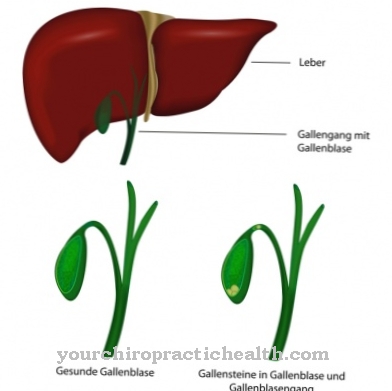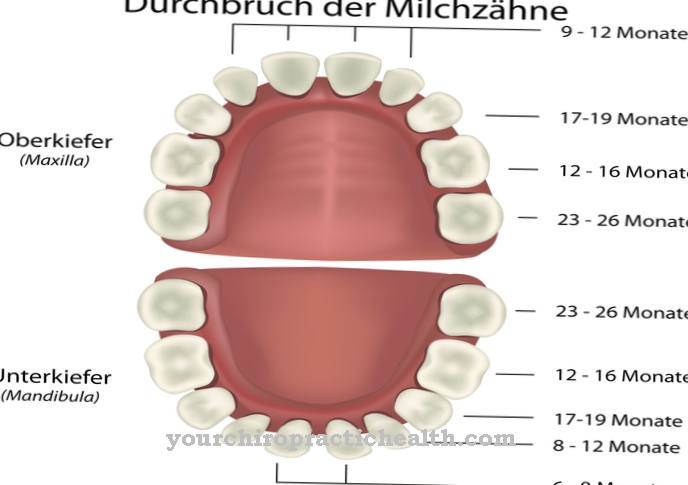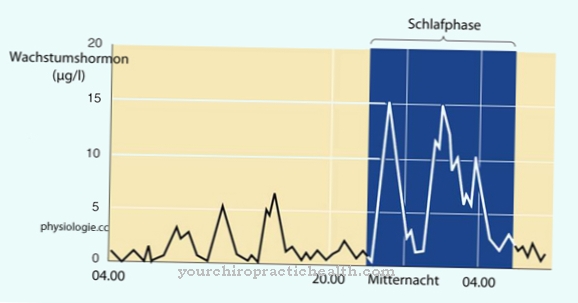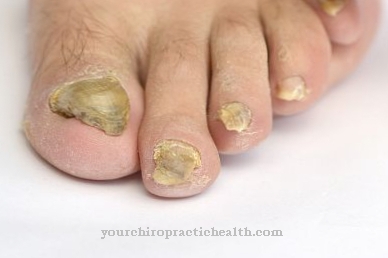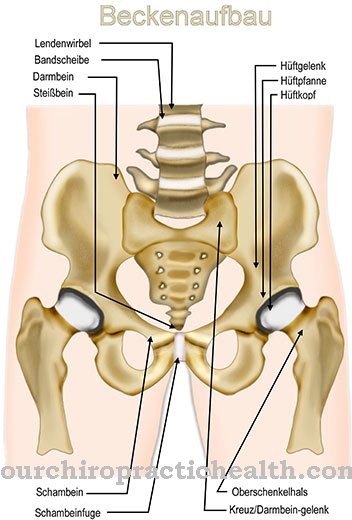If you give up smoking in time, your lungs will regenerate. The personal risk of many diseases is reduced by a smoke-free life. According to studies, however, one in two smokers shy away from quitting because they fear weight gain. What's up with the smoke free weight gain and how can it be avoided?
Quit smoking
Everyone knows that smoking is a carcinogen. It is not just the cancer risk that increases with the luxury food: the skin and the entire rest of the body age faster because up to 1015 free radicals flow through the body with each puff. Free radicals age the organism and play a major role in the development of diseases.
Degenerative diseases such as Alzheimer's and autoimmune diseases such as multiple sclerosis are now increasingly associated with the formation of free radicals. Even infertility is favored by exposure to cigarette smoke.
Since smokers not only poison themselves, but also those around them, the line is worth twice. Complete regeneration of the lungs is conceivable, but it takes time. After about ten years, the toxins are broken down. The sooner the line is drawn under nicotine consumption, the better. Because not always means one Smoking cessation also resulted in weight gain.
Weight gain after quitting smoking is overestimated
Many smokers are afraid of gaining more or less weight as soon as they translate into a non-smoking life. This fear is not entirely unjustified. Active smokers experience a nicotine-related suppression of their appetite. In addition, around 200 calories are bound daily by the pollutants. This increases the fat metabolism.
Since non-smokers-to-be suffer from a recurring appetite in the weaning phase and often begin to eat ritualized as a substitute for nicotine consumption, weight gain after quitting smoking is more than a wives' tale. Obesity is also unhealthy, it is often argued against this background.
This reasoning is only conclusive at first glance. At second glance, it turns out that the subject of weight gain after smoking cessation is clearly overestimated. According to the DKFZ, most people may gain around four kilograms in the short term, but lose them over time as soon as the non-toxic metabolism has leveled off again.
Five Tips To Quit Smoking Without Gaining Weight
There are a few tips to prevent excess pounds from smoking cessation.
- Find healthy substitute rituals
Instead of bringing the cigarette to their mouth, many people develop substitute rituals. After a meal, people usually reach for a conventional cigarette. Some ex-smokers make the mistake of bringing a high-calorie dessert to their mouth instead of a cigarette during the weaning phase. Better a schnapps, sugar-free candy, chewing gum or a refreshing drink. Replacement rituals do not necessarily have to be related to eating or drinking. The German Cancer Research Center suggests scribbling on paper, crossword puzzles or tidying up as substitute rituals.
- Nicotine replacement products
Use substitute products Extreme smokers are advised to use nicotine substitute products during the quitting phase at pharmacies. These substitutes can be nicotine patches or chewing gum. Replacement preparations reduce the effect of weight gain. Lozenges and nasal sprays as well as inhalers are available. Consult a doctor before using any substitute product. Not only can he recommend suitable products, but he can also provide tips on how to quit smoking without gaining weight.
- Start talk therapy
In order to cope better psychologically with withdrawal, smoking cessation courses including talk therapy are available.All problems and experiences during weaning can be discussed at this point. The nonsmokers-to-be learn helpful behaviors from others in the courses. Hypnosis may also make sense in the weaning phase. In hypnotherapy, emotions are linked to reaching for a cigarette and not smoking within the subconscious. At this point, for example, overeating can also result in negative sensations. However, the effectiveness of hypnotherapy has not been scientifically proven.
- Exercise helps
In order to also limit weight gain, a nutritionist recommends that nonsmokers-to-be can distract themselves with exercise and exercise. Not only that: the appetite can also be curbed through regular exercise. The metabolism is boosted and calories are reduced. Whether short distances by bike, household chores or stairs instead of an elevator: any kind of movement can prevent the weight gain from smoking. An additional plus: the expectant non-smoker notices how his lungs are getting healthier bit by bit and the sport is becoming more and more fun.
- Healthy eating
In order not to gain weight during smoking cessation, diet naturally plays the main role. Low-calorie meals are on the plan. Sugared lemonades, chips, sweets and alcohol will be canceled. Plus a lot of drinking! This curbs the appetite and detoxifies the body. Nicotine boosts the fat metabolism. In order not to gain weight while quitting smoking, the same effect can be achieved with certain foods. The metabolism is also stimulated by caffeine, eggs, nuts and whole grain products, for example.
You can find your medication here
➔ Medicines for smoking cessationConclusion: Better live smoke-free - don't be afraid of getting fat
To continue smoking just for fear of gaining weight is absurd. The metabolism-promoting effect of nicotine can be replaced by a change in diet. Anyone who also develops exercise-based rituals to replace the cigarette does not have to fear significant weight gain when giving up smoking. If you do it right, you will not only be smoke-free and healthier after a few weeks, but will also develop a completely new attitude towards life. There are always opportunities to lose weight. On the other hand, smokers only have the option of lung regeneration if they put a line under the smoking life.

.jpg)
